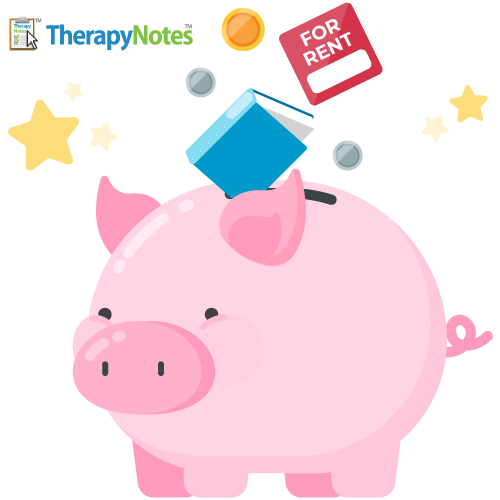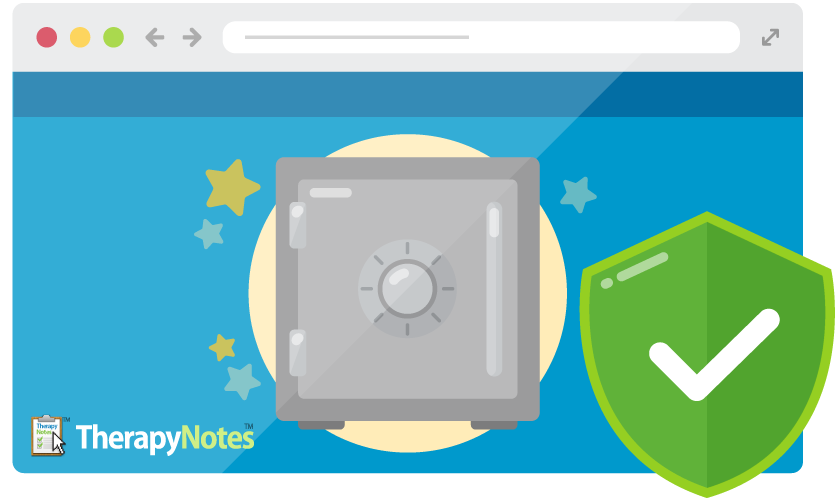5 Ideas to Diversify Your Income in Private Practice
By Dr. Ajita Robinson on August 7, 2019

'Tis the season where the phones slow down.
Summer has arrived, and clients tend to come in for sessions less frequently. We are excited for our clients and welcome the slower pace, but our income is unstable and plummeting. Panic starts to set in. Well, if we know that summer brings a slump in referrals, we can prepare for its arrival and embrace the chance to engage in other income generating activities earlier on in the year so that we don’t experience such a hit!
Hint: "Summer Slump" doesn’t have to be a thing. Our Fill Your Practice challenge can help you beat the slump.
Whether we're facing a summer or winter/holiday slump, all practice owners should think about ways to diversify their income. This is key to having consistent income and a sustainable business model.
My personal favorite income stream for mental health providers is PASSIVE INCOME!
Let’s face it, we work HARD, and we bear witness to some difficult challenges year ‘round. This is both a privilege and another thing that we must unpack so that we can continue to do good work. The reality is that there is still a shortage of mental health professionals, and yet, we have knowledge and skills that need to be shared on a wider, global scale. There aren’t enough hours in the day to do all the things and reach all who we are trained to serve.
Also, let’s be real: most of us have heard over and over that “you don’t enter this field to make money.” Many of us interpret this in our own ways and have maybe even heard, “you can’tmake money in this field.” But at the end of the day, that is inherently false. In fact, it is so important that we leverage our knowledge and skills to reach more people while earning residual income. Our clinical skills are needed wherever there are people. I often tell members of my Global Leaders program that our skills are transferable and should be leveraged to serve on a broader scale.
Here’s are few ways that you can begin leveraging your skills to diversify your income:
- Create courses: Courses are a great way to share information, provide psychoeducation, or teach a skill. Many of us have areas of expertise that others ask us about all the time. We find ourselves being tagged in Facebook groups to weigh in on a topic that we’ve become known as an expert in. We might even have people across the country who are interested in being trained in an area that we have advanced knowledge or skills in. Creating a course can increase the accessibility for those who otherwise might go without the needed support. For example, we have a course on how children deal with grief, and it often gets requested by parents, educators, and other experts from all over the country.
- Host webinars: These are an excellent way to share information and provide some live engagement. The nice thing about webinars is that they give the audience, or at least those who can attend live, an opportunity to ask questions and receive feedback. It’s another way to educate the general public, parents, members of the community, etc. on a topic that is of interest to them. It is an excellent way to provide value and a sense of support. The webinar can be hosted live or offered as a self-paced course.
- Sublease office space: Maximizing your office space to generate revenue is an area that we sometimes forget to leverage. My clinicians currently don’t see clients on the weekends. We rent our conference room out for one Saturday per month to a local women’s group and a local engineering group. The revenue that we receive from subleasing our office defrays one-fourth of our office space costs. Do you have “hours” in your office that aren’t utilized? We found our tenants through our local chamber of commerce.
- Create workbooks: We are constantly creating activities to use with clients or modifying activities to serve our unique population. We created a template and began compiling the interventions that we created to use with clients and we even created a workbook that we ultimately used as a curriculum for one of our groups. We then tested and validated the exercises and now offer the workbooks for sale.
- Become a consultant/trainer: I scaled my clinical practice to 7-figures by securing consulting and training contracts. We support nearly 87 camps across the Northeast and Midwest regions, and we provide a variety of training to their staff and camp counselors. Additionally, we contract with local public and private schools to provide professional development workshops and help create crisis response protocols. These are skills that we utilize everyday with clients and with larger agencies that we intentionally leveraged on a macro-level to broaden our impact and diversify our income.
There are so many ways to diversify your income and leverage your clinical skills beyond the couch. These are just a few ways that have a relatively low entry point to help you get started.
I receive a lot of questions about how to get started, so here are some practical tips:
- First, identify the low-hanging fruit. In other words, what are you already known for and who can best benefit from that service or skill?
- Second, identify who needs that service or skill. It is important to understand that there is a difference between your customer (who pays for your service) and your consumer (who benefits or uses the service).
- Third, identify who the decision-maker is and how they best receive information and make decisions. For example, we often reach out to schools to offer training on recognizing trauma in the classroom, recognizing homeless youth, etc. We know that counselors and educators are the consumers, but, in my area (Montgomery County Maryland), the Principals and Superintendent are often the decision-makers. I also know that the decision-makers in this instance are often data-centered decision-makers, whereas the consumers (educators and counselors) are often heart-centered. This distinction is important to know and understand because it helps you in preparing for the conversation on how to best lend your expertise.
- Fourth, identify how the information is best absorbed by your audience. What is the learning style that your participants most likely will benefit from? This should help determine which modality (webinar, workbook, course, etc.) you choose as a method of delivery.
I hope you are well on your way to diversifying your income! I share a variety of tips and strategies to help you diversify your income and build a sustainable practice on my website, Instagram, and Facebook. Let’s stay connected!
* The content of this post is intended to serve as general advice and information. It is not to be taken as legal advice and may not account for all rules and regulations in every jurisdiction. For legal advice, please contact an attorney.
About Dr. Ajita Robinson
Get more content like this, delivered right to your inbox. Subscribe to our newsletter.
More Content You'll Enjoy

Converting Clients

Building a Leadership Team
